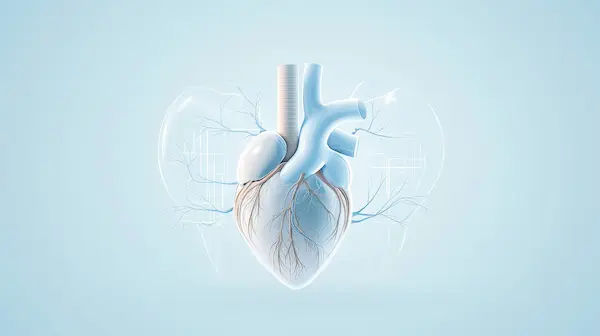How to Reduce Plaque In Arteries?
Learn how to reduce plaque in arteries naturally through diet, exercise, and lifestyle changes. Improve heart health with expert-backed tips.

Written by Dr.Sonia Bhatt
Last updated on 3rd Jul, 2025

Introduction
Plaque buildup in the arteries, also known as atherosclerosis, is a common condition that can significantly impact your heart health over time. It may lead to serious health problems like heart disease, heart attacks, and strokes. Although plaque can’t be completely removed, the good news is that with healthy lifestyle changes and proper medical care, you can reduce it, improve circulation, and lower your risk.
What Is Plaque in Arteries?
Plaque is a sticky substance made up of fat, cholesterol, calcium, and other substances found in the blood. Over time, it can build up inside the walls of your arteries, making them narrow and stiff. This reduces blood flow and can lead to serious complications.
Symptoms of Plaque Buildup
In the early stages, plaque buildup may not cause any noticeable symptoms. However, as it progresses, you may experience:
Chest pain (angina) due to reduced blood flow to the heart
Shortness of breath, especially during physical activity
Leg pain while walking, caused by poor circulation (peripheral artery disease)
Fatigue or dizziness, due to reduced oxygen supply
Sudden numbness or weakness, a sign of a possible stroke
If you experience any of these symptoms, it’s important to consult a doctor promptly.
Consult Top Doctors for Your Symptoms
Causes of Plaque Buildup
Several factors contribute to plaque formation in the arteries:
High cholesterol – Excess LDL ("bad" cholesterol) sticks to artery walls and contributes to plaque formation.
High blood pressure – Constant pressure damages the inner lining of the arteries, making them more prone to plaque.
Smoking – Chemicals in tobacco harm blood vessels and accelerate plaque buildup.
Diabetes – High blood sugar increases inflammation and encourages plaque formation in the arteries.
Obesity – Carrying excess weight increases cholesterol and blood pressure, increasing the risk of arterial plaque.
Lack of exercise – A sedentary lifestyle slows circulation and contributes to cholesterol buildup.
Unhealthy diet – Consuming foods high in trans fats, sugar, and processed ingredients increases cholesterol and promotes plaque formation.
How to Reduce Plaque in Arteries?
While you can’t completely remove existing plaque, you can slow its progression and even shrink it with healthy lifestyle changes and medical treatments.
Eat a Heart-Healthy Diet
A healthy diet supports artery function and reduces plaque formation:
Increase fibre-rich foods – Oats, beans, fruits, and vegetables help lower cholesterol.
Choose healthy fats – Olive oil, avocados, nuts, and fatty fish like salmon reduce inflammation.
Limit unhealthy fats – Trans fats in fried and processed foods and saturated fats in red meat and full-fat dairy increase plaque buildup.
Cut back on sugar and refined carbs – Excess sugar increases triglycerides, contributing to plaque buildup.
Add antioxidants – Berries, dark chocolate, and green tea help protect artery walls and reduce oxidative stress.
Exercise Regularly
Physical activity keeps your heart and blood vessels healthy:
Aim for 30 minutes of moderate exercise, like brisk walking, cycling, or swimming, most days.
Include strength training twice weekly to build muscle and improve circulation and heart health.
Stay active throughout the day with short walks and stretching, especially if you have a desk job.
Quit Smoking
Smoking damages blood vessels and accelerates plaque buildup. Seek support from a doctor or smoking cessation programs, if needed, to help you quit successfully.
Manage Stress
Chronic stress increases inflammation and blood pressure. Practice relaxation techniques like deep breathing, yoga, or meditation.
Control Blood Pressure & Cholesterol
Maintaining healthy levels is crucial for heart health:
Monitor BP regularly and aim for below 120/80 mmHg.
Reduce salt intake to help lower blood pressure.
Take prescribed medications for high cholesterol or hypertension, as advised by your doctor.
Maintain a Healthy Weight
Losing even 5-10% of body weight can significantly improve cardiovascular health. Focus on gradual, sustainable weight loss through balanced nutrition and exercise.
Limit Alcohol
Excessive drinking raises blood pressure and cholesterol levels. Stick to moderate drinking—no more than one drink per day for women and two for men.
Get Enough Sleep
Poor sleep quality increases inflammation and raises the risk of heart disease. Aim for 7-9 hours of restful sleep each night.
Consider Medications (If Needed)
Medications can help manage risk factors:
Statins lower LDL cholesterol and stabilise plaque.
Blood pressure medications help protect arteries from further damage.
Aspirin therapy, if recommended by a doctor, may reduce blood clot risk.
Regular Health Check-ups
Get cholesterol, blood pressure, and blood sugar levels checked regularly. Early detection allows for timely lifestyle adjustments or treatments and helps prevent complications.
Assess Your Heart Health
When to See a Doctor?
If you have risk factors like high cholesterol, high blood pressure, or a family history of heart disease, consult a doctor for preventive care. Seek immediate medical attention if you experience:
Severe chest pain
Sudden shortness of breath
Weakness or numbness on one side of the body (stroke symptoms)
Final Thoughts
Managing plaque in arteries takes consistent effort, but even small changes can lead to big improvements in your heart health. Small changes in diet, exercise, stress management and getting regular check-ups can make a big difference in your heart health. If you need personalised advice, consider booking a consultation with a cardiologist through Apollo 24|7 for expert guidance.
Consult Top Cardiologists
Consult Top Doctors for Your Symptoms

Dr. Sushith C
General Physician
2 Years • MBBS
Bengaluru
PRESTIGE SHANTHINIKETAN - SOCIETY CLINIC, Bengaluru

Dr. Anand Ravi
General Physician
2 Years • MBBS
Bengaluru
PRESTIGE SHANTHINIKETAN - SOCIETY CLINIC, Bengaluru

Dr. Bhethala Sharan Prakash
General Physician/ Internal Medicine Specialist
5 Years • MBBS MD
Bengaluru
PRESTIGE SHANTHINIKETAN - SOCIETY CLINIC, Bengaluru

Dr. Zulkarnain
General Physician
2 Years • MBBS, PGDM, FFM
Bengaluru
PRESTIGE SHANTHINIKETAN - SOCIETY CLINIC, Bengaluru

Dr. Tripti Deb
Cardiologist
40 Years • MBBS, MD, DM, FACC, FESC
Hyderabad
Apollo Hospitals Jubilee Hills, Hyderabad
Consult Top Cardiologists

Dr. Sushith C
General Physician
2 Years • MBBS
Bengaluru
PRESTIGE SHANTHINIKETAN - SOCIETY CLINIC, Bengaluru

Dr. Anand Ravi
General Physician
2 Years • MBBS
Bengaluru
PRESTIGE SHANTHINIKETAN - SOCIETY CLINIC, Bengaluru

Dr. Bhethala Sharan Prakash
General Physician/ Internal Medicine Specialist
5 Years • MBBS MD
Bengaluru
PRESTIGE SHANTHINIKETAN - SOCIETY CLINIC, Bengaluru

Dr. Zulkarnain
General Physician
2 Years • MBBS, PGDM, FFM
Bengaluru
PRESTIGE SHANTHINIKETAN - SOCIETY CLINIC, Bengaluru

Dr. Tripti Deb
Cardiologist
40 Years • MBBS, MD, DM, FACC, FESC
Hyderabad
Apollo Hospitals Jubilee Hills, Hyderabad

